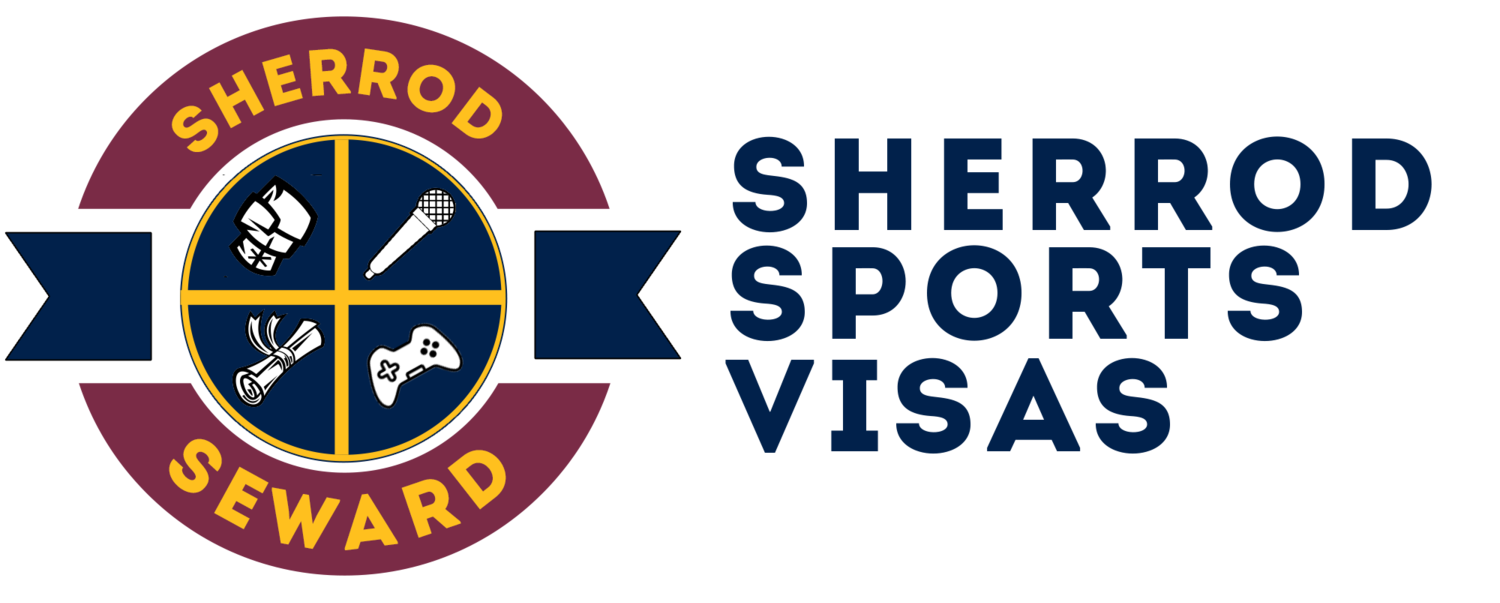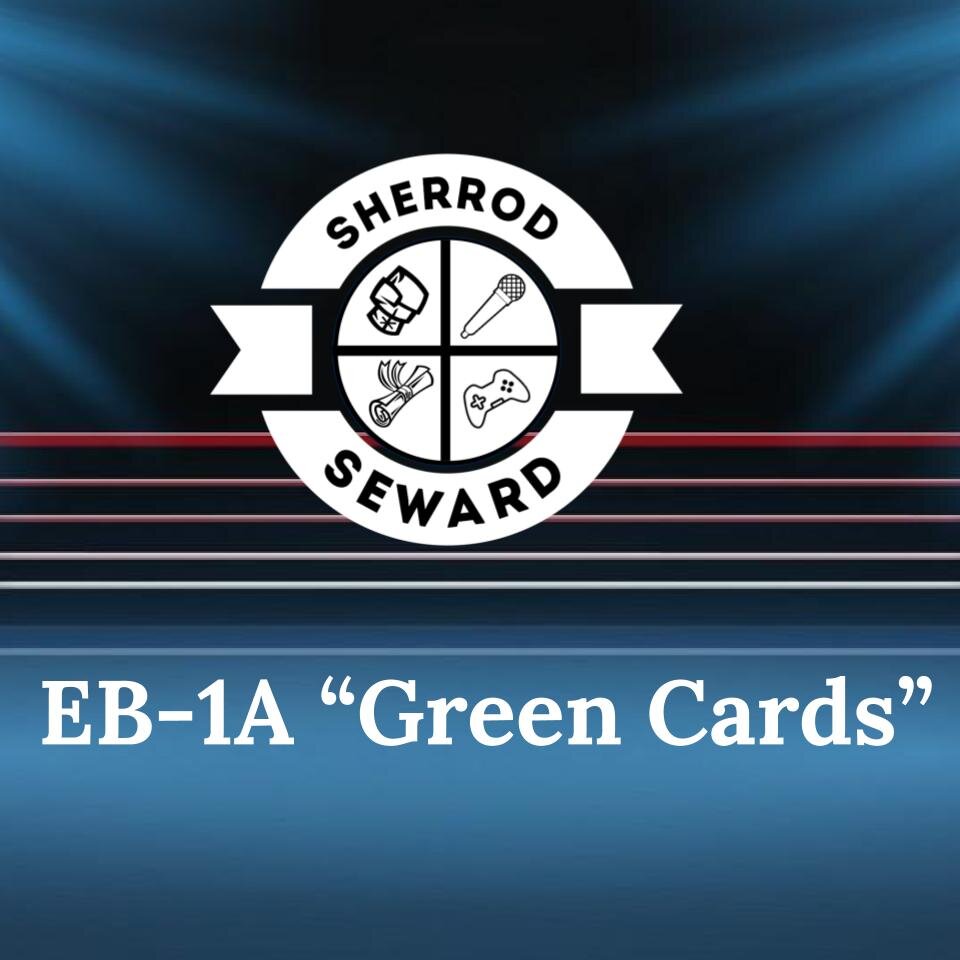Green Card Options for Athletes
Promoters from around the country have contacted Sherrod Sports Visas Law to find out how their boxer, mixed martial artist, jiu jitsu practitioners, and other athletes can obtain Permanent Legal Residence (“Green Card”) through their profession. It is no secret that these applications are difficult to get approved and a lot of information is required to be successful. EB-1, EB-2, and EB-3 applications often do not adequately articulate both the industry of the sport and the merits of every achievement accomplished the athlete. Successful petitions also require a lot of proof from credible sources. It pays dividends to engage an immigration lawyer that understands the sports industry, has contacts within the industry, and also the ability to tell the athlete’s story to obtain Permanent Legal Resident status.
There are two paths for athletes to obtain a Permanent Legal Residence (“Green Card”) through their profession:
EB-1 Also Known as the Einstein Visa
Self-Sponsorship - does not require sponsorship from an employer
High Bar - must prove extraordinary abilities
Universal Employment Authorization during the process
8 months for approval of EB-1 status
6 months to obtain Permanent Legal Residence (“Green Card”)
EB-2 OR EB-3 Foreign Immigration Skilled Worker Visa
Requires a labor certification
Promotion must sponsor the athlete
The position must be advertised
Lower Bar - must match job description for an employer
Requires job offer
Lengthy application process - can take about two years
EB-1A Self Sponsorship Green Card
The appropriate EB-1 visa for a fighter is the EB1A visa for aliens that have extraordinary abilities. The god news is that it does not require a labor certification which requires sign off from the Department of Labor and for the position to be advertised to the public. Since the EB-1 does not require a labor certification, the timing is much shorter than both EB-2 and EB-3 visas. The first part of the process which involves getting approved as an alien with extraordinary abilities takes about 7-8 months for USCIS to process and approve. Once this portion is approved, the fighter will receive their work authorization while the Permanent Legal Residence (“Green Card”) portion of the application is adjudicated. This process can take another 6-8 months. Once complete, the fighter will be a Green Card holder.
The fighter must meet 3 out of the 10 listed criteria below to prove extraordinary ability in the sport:
Evidence of receipt of lesser nationally or internationally recognized prizes or awards for excellence
Evidence of membership in associations in the field, which demand outstanding achievement of their members
Evidence of published material about the fighter in professional or major trade publications or other major media
Evidence of judging the work of others, either individually or on a panel
Evidence of original scientific, scholarly, artistic, athletic, or business-related contributions of major significance to the field
Evidence of authorship of scholarly articles in professional or major trade publications or other major media
Evidence that work has been displayed at artistic exhibitions or showcases
Evidence of performance of a leading or critical role in distinguished organizations
Evidence of high salary or other significantly high remuneration in relation to others in the field
Evidence of commercial successes in the performing arts
EB2 & EB3 Employer Sponsored Green Card
EB-2 immigrant preference classification is for individuals who have “exceptional ability" in the sciences, arts, or business (the government has interpreted this to include athletics); and “EB-3 classification is for individuals who qualify for permanent employment in positions requiring professionals that possess a minimum of a Bachelor’s Degree in a field directly related to the prospective employment - or “skilled workers" who possess at least two years of employment experience or related training which to athletes.
EB-2
This option typically requires the fighter to have college degrees in addition to being an accomplished athlete. The degree is typically at the Masters level from a U.S. university or foreign equivalent. The petition must include official academic record showing receipt of the degree and also letters from employers showing experience in the field. These requirements might not be appropriate for most fighters but can be a great fit for others. For example, in Russia it is not uncommon to have a Masters of Sport Degree from a University in addition to an outstanding record in competition. The EB-2 process can be advantageous over the EB-3 because there are limited amount of people that qualify which is helpful during the Labor Certification process. Both EB-2 and EB-3 petitions require that the position be advertised to the public before hiring the foreign worker.
In addition, the adjudicating officer will use a seven point regulatory qualification system to determine eligibility for the visa.
Official academic record proving successful completion of degree from a college, university or other institution of learning relating to the applicant’s chosen field.
Letters documenting at least 10 years of full-time experience in the applicant’s chosen profession.
A license or certification to practice the chosen profession.
Evidence of a salary demonstrating exceptional ability.
Membership in a professional association.
Recognition from government entities, or professional organizations for contributions made to the applicant’s chosen field.
Other evidence of eligibility is acceptable.
EB-3
EB-3 employees are professionals, skilled workers, and other workers with at least two years of experience as skilled workers, professionals with a baccalaureate degree, and others with less than two years experience, such as an unskilled worker who can perform labor for which qualified workers are not available in the United States. This is appropriate for fighters who do not have the academic credentials to support the EB-2 visa.
The difficult part about the EB-2 and EB-3 process is that the employer will have to show that there are no available, qualified, and willing US workers for the position. The employer will also have to demonstrate that they have the financial ability to support the fighter.
Labor Certification Process
The most difficult part of the EB-2 or EB-3 process is the labor certification which must be performed with special care and attention. The purpose of this process is to prove that the employer cannot find available, qualified, and willing U.S. workers for the position. Adjusting qualifications for the position is where there is room for an attorney to help the EB-2 or EB-3 be successful. The job description and requirements for the job is tailored to match the skills and experience of your target employee.
The labor certification process is facilitated through the U.S Department of Labor (DOL).The U.S employer must prove that they will not discriminate against the foreign worker by promising to pay the prevailing wage. This process takes about 6 months to adjudicate, and the EB-2 or EB-3 process cannot continue until the certification is approved.
Goverment Fees and Application Timing
For EB-1, the government fees are $700 for the I-140 and $1225 for the I-485 Adjustment of Status.
For EB-2 and EB-3, the PERM Labor Certification does not have government fees, the I-140 is $700, and the adjustment of status is $1225.

